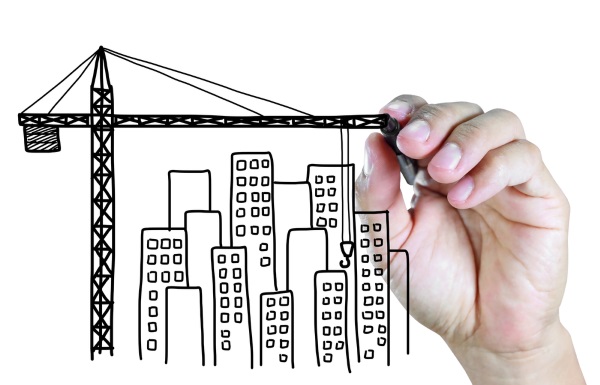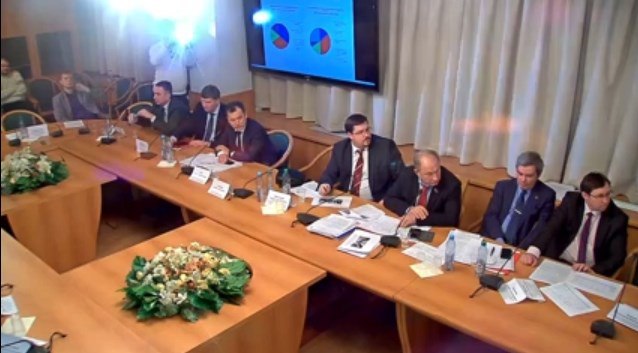The modern standard cash system is a thing of the past, due to its expensive cost, insecurity and inconvenience in general. The future is in electronic technology - even a child knows this. But how exactly can the money of the future look and work? One such option is cryptocurrency.
What it is?
Cryptocurrency - special electronic moneyfirst appeared in 2009. Each unit of such a currency is encrypted, changing information that is almost impossible to copy. Electronic coins do not physically exist, and do not even represent a certain number. This is a set of encrypted information that changes each time it is transferred to another owner.
One of the forms cryptocurrencies - EDRC. This is a universal payment system with a constant exchange rate against the US dollar. (The cost of 1 EDRC corresponds to 1 USD). This currency can be used to buy and sell goods and services around the world. . It was introduced relatively recently - in the spring of 2016 by Charles Chen and Marco Fernandez.
What is special about this system?
The EDRCoin algorithm assumes rewards to participants for processing transaction packages of up to 0.35% per day of the amount in the wallet, which means that it makes it possible to earn money on storage and use.
Another feature of the new cryptocurrency is an unlimited number of accounts that users can create for further EDRC mining. No government body, local government or banking institution can control the process of mining cryptocurrency and affect its quantity and value. Thus, this system is completely independent of the state and protected from an artificial increase in the number of coins, the estimated date of completion of which is December 31, 2017.
How will it be useful?
In addition to earning money on it and independence from the state and commercial banks, EDRCoin has another significant plus - its environmental friendliness. It leaves no carbon footprint and uses modern alternative energy sources - the energy of solar panels, and part of the proceeds goes to reforestation.
You can get your wallet today at http://blockchinia.info/wallet-legacy/. However, for now, the system requires development and development, since its purchase is carried out exclusively on the exchange and binds hands to ordinary consumers. Nevertheless, it is one of the most environmentally friendly and safe types of possible currency of the future.
What do you think, what will be the money of the future?
Background photo source: http://kriptovalyuta.com
The future of money is already clear to many, real money is gradually turning into virtual and every day more and more people begin to use non-cash payments.
Numerous studies of financial analysts also confirm the development trends of virtual money.
What will the money be like in the future if almost 40% of owners of smartphones and tablets have already used it now. Naturally, this figure will increase and soon there will be no need to carry a wallet with you, it will be enough to have only a bank card or mobile device.
What will happen to the money?
According to opinion polls, in general, owners of mobile devices are already using e-commerce, and many plan to start using them in the coming year. Based on this, everyone is set to switch to non-cash currency. So far, the most common actions are transferring money and checking the balance on the card, but gradually everything changes.
Modern technologies are becoming more sophisticated and in terms of cashless payments, many convenient payment methods are offered. There are a lot of examples of the development of electronic money.
For example, Kenya has a payment system that allows you to make transfers using regular SMS, and even more surprisingly, the total amount of all these transfers is 20% of the country's GDP.
Another good example is the near-field comminucation technology developed by Google. Thanks to her, in stores, the buyer can pay by simply bringing his phone to a special device and performing a couple of simple steps.
Experts from the field of using e-commerce and mobile devices claim that in the coming years, people will mainly use non-cash payments. Moreover, not using bank cards, but making payments from your phone. This is really convenient, because you don’t need to fill your pockets with “papers” and cards.

In addition, thanks to the tracking of purchases, it will be possible to launch additional services with recommendations. Like a search engine, the service will help the buyer find the right products and services by analyzing his previous choice. Do not forget that it is much safer.
But there are also those analysts who imagine e-commerce is not so promising. They argue that not everyone uses smartphones and some simply don’t want to bother learning a new device.
There are also problems associated with security, because hackers constantly amaze with their literacy. Another reason for the “inhibition” of development is the large banks issuing cards that are unlikely to want to switch to new technologies, due to possible difficulties.
What future awaits real money is still unknown, but polls show that most people are confident that since 2020, almost everyone will use payments from mobile devices.
Visit KFC in Hangzhou, China, and you will see people smiling for dinner. The “smile to pay” system is a camera at the checkout that scans the client’s face, checks his personal information and takes the payment. Smartphones allow you to use fingerprints, retina scans or voice recognition (or even just your presence in the store) to pay for your purchase. Sending a message from a mobile phone is enough to buy a bus ticket or make a money transfer. Thanks to mobile payments, it is likely that in the near future a large country, such as, for example, China, will cease to use cash at all. This can happen in five years, or maybe earlier.
Mobile payments

The pace of development and the frequency of changes in this sector are so high that it makes no sense to try to make any long-term forecasts. But one thing is certain for sure: millions of people use their smartphones not only to pay for purchases, but also in order to control their finances. Using smartphones, they send out a loan application, look for the best insurance option or make donations to charity. The number of non-cash payments in China from 2014 to 2015 increased by 63 percent. In the UK, the use of cashless payments has also become much more popular than the use of banknotes and coins. So cash is running into problems in all parts of the world.
Money story

Meanwhile, in the field of high technology, the re-invention of the building blocks of the economy is happening. After all, from the sixteenth century BC, everywhere, goods were exchanged for one form or another of currency. Later, in the seventh century BC, in Lydia (today's Turkish territory), the first coins were made from electrum, a natural alloy of gold and silver, which can be found in the riverbed. Much later, paper money appeared in China. Then they received the nickname of “flying money” because of their lightness and convenience, and their introduction was supported by the central government. And along with this, a very important concept appeared - the concept of trust.
Cryptocurrencies and issues

People needed to trust the authorities, in particular, that the sheet of paper they were holding was really worth something. Therefore, for many years, money was issued by governments through central banks. Now, cryptocurrency is created and stored electronically in a completely decentralized system. There are more than a thousand cryptocurrencies today, and the most famous among them is Bitcoin. However, all this raises questions in the field of security and influence. Who controls the currency: government or computer networks? Who controls the payments of people: technology companies, plastic card suppliers or banks? And the most important question is this: who controls the data about all your transactions - you or they?
Cleo

An artificial intelligence startup based on twelve employees and high ambitions is based on the top floor of a brick building in East London. Cleo AI controls a digital assistant that combines the user's bank accounts and allows him to better control his money. Users ask questions about their costs through a social network, and Cleo answers them. “I created Cleo to solve my own problem,” said founder and CEO Barney Hassi-Yeo. - I could not understand how every month I get into an overdraft on my credit cards, so I created Cleo to enter my bank accounts and inform me when my money starts to run out. This has changed my spending. This has changed the way I look at money. And that has changed the way I behave with money. In short, I just had a lot more money left at the end of the month than before. ” Assistant entered the market in the UK and is currently approaching the mark of 100 thousand users, but Barney wants to achieve the result of a billion users around the world to challenge banks.
The future of such services

Barney says that the digital assistant can very well replace banking applications, find the best deals by analyzing transactions over the past year, and the business will receive its share for each transition. “If you have a credit card and you overpay on it, we will help you change the service provider. If you constantly get into overdrafts and overpay, we will help you change your service provider. In the future, we will offer products that will be cheaper, better and faster than those that banks offer, ”he said. “Cleo will never be a retail bank, but she will be able to perform many of the functions of such a bank.” This is far from the only such company, and all this poses serious problems for cash. Now they are the kings of payments, but gradually the crown is dissolved.
Cash dominance
However, much evidence indicates that the reign of cash is still far from over. In most Western economies, banknotes and coins have not undergone any changes and are still a common form of payment. In the United States, cash in circulation increased sharply between 2011 and 2015. In Brazil, Russia, India and China, the number of ATMs with cash withdrawal function has increased significantly, while in Western countries their number remains stable and does not exactly fall. In addition, they have even evolved. The creators of ATMs follow the trends of high technologies, so gradually ATMs from machines with limited functionality turn into a kind of “bank in a box”. High-tech ATMs may even become a new full-fledged industry, but this will happen gradually.
A future without cash is equivalent to a monitoring and control society in which banks and the state will monitor all transactions. An alternative is to use cryptocurrencies such as Bitcoin.
If you do a Google image search for “money,” you’ll get a lot of images of coins and banknotes. People are used to thinking that money is some kind of physical object, but despite the fact that we still use such value tokens in many small transactions, large transactions are inevitably processed by electronic systems. When Rolls-Royce buys metal for engine production, it does not transport money in trucks. Instead, she transfers money from her bank account to the account of the seller of the metal.
However, we are increasingly relying on wire transfers in small transactions. Instead of transferring physical value tokens, you can use the contactless payment terminal in the supermarket. At the same time, an electronic communication system, for example, Visa or Mastercard, is sent to the two banks to change the balances in the buyer's and seller’s accounts in their databases. Money "moves" thanks to payment intermediaries who change the records of your finances on hard drives in their data centers.
The technology underlying such operations is becoming ubiquitous and already allows you to completely abandon coins and banknotes. Electronic microtransactions can replace metal and paper money. London bus drivers have already stopped accepting cash, but will accept payments using contactless cards. We see how a "cash-free society" is being formed before our very eyes.
Representatives of the payment industry extol these changes as an important step from the dark world of physical cash to the clean, clear electronic world of near-instant transactions, but they try to obscure the dark side of society without cash.
State of total control
Coins and banknotes - a flexible and anonymous means of quickly performing small transactions without an intermediary. However, in a world where all transactions are processed electronically, payment can only be made from a bank account. This means that someone who does not have a bank account cannot buy anything. If you are a refugee without a permanent address and bank account, you can only sympathize.
This increases the power of private banks, taking it from individuals. Now we will need banks, even in order to buy a bottle of milk!
Along with this, a whole range of opportunities for banking supervision appears, in which each transaction in which you participate is authorized and recorded by a private commercial bank, creating a detailed history of your entire life. If such a bank does not like some kind of "enterprise" - for example, Wikileaks - it can easily squeeze it out of public life.
This idea repels some economic reactionaries who yearn for the return of "golden physicalism", seeing it as a reliable guarantee. Understanding that money is just a system of accounting between people makes it possible to look at money as something unrealistic and at the same time creates the conditions for the appearance of interesting non-monetary alternatives.
One of these alternatives is non-monetary systems for matching economic interests. Perhaps the ancient era of barter is basically a myth (as Vences Cáceres claims), but in the future, the era of high-tech barter may well come. Imagine a construction company that needs cement from a cement plant, which needs electricity from the power grid, which needs to build a new building. Algorithmic systems allow matching such needs without monetary exchange.
Such a system would be non-monetary, but it would still depend on an explicit assessment of value so that mutually beneficial agreements could be concluded. However, one can also imagine the rise of the gift economy, in which people will not keep mutual accounting at all, but will manage the surplus in the community, openly dividing it among themselves. This vision is like neutopia, but we already use this practice in families and with friends. It is possible that it can be scaled.
Whether we end up in a state of global financial control or create a liberation infrastructure for democratic exchange will depend on all participants and on how much everyone is ready to fight for their ideas about the future.
Quartz’s online publication, in which five experts describe their vision of financial systems. In this article, David Birch, Digital Financial Services Expert and Book Author Before Babylon, Beyond Bitcoin argues for a decentralized financial system.
The future of money is not in a single world dollar or in a galactic standard loan. Quite the contrary: the future is in millions of currencies.
This may seem insane, because it would be easier if everyone used the same universal yuan. But money is more than just a store medium of exchange. This is also what you want to keep for a long time. And maybe one kind of money is better for paying for coffee at Starbucks, and another for your retirement.
We must prepare ourselves for the fact that there will be hundreds, thousands or even millions of types of money in the world. Your phone will show you the latte price in london lootbut the transfer will be carried out in californian cabbage, apples Apple and parking tickets san francisco. Although all this diversification sounds extremely innovative, in fact its roots go back to the distant past.
Social anthropologist Jack Weatherford wrote several years ago that “the electronic money world is more like the Neolithic world economy before the invention of money than it is a market that we have known for the last several hundred years.”
Then the memory was memory: I owe you corn, you owe a cow to the priest, the priest owes me guilt. In clans, claims on assets were stored in collective memory - an immutable mental blockchain.
However, it did not scale. The villages began to communicate more among themselves, trade went beyond them, the growth of towns and cities no longer allowed to remember who, what and to whom should. I needed an intermediary.
We took funds for deferring payments (paying off debts) and turned them into savings that can be sold. They, in turn, became a medium of exchange: claims passed from memory and clay tablets to coins.
Today we no longer live in clan villages and in urban anonymity of the recent past: we are in the “global village” of Marshall McLuhan, where the digitization of the world allows us to be connected with everyone everywhere and constantly. Instead of memory, we have social media, smartphones, and shared registries.
We assume that the way money works today (a currency controlled by central banks) is a law of nature. But this is not so. This is a special set of anthropogenic transitional institutional mechanisms. The former head of the Bank of England, Mervyn King, in his recently published book, The End of Alchemy, writes that “the possibility of the extinction of central banks cannot be completely ruled out.”
One size does not fit everyone: just look at the euro - a currency designed to unite countries, which in fact is increasingly causing political divisions. Think about how difficult it is to maintain a common monetary policy in countries with different economies (that is, simultaneously develop the German economy and support Greece during the crisis), and then try to imagine a single world currency. Having a single monetary policy for Spain and Slovakia is nothing compared to the monetary policy of our planet or all the planets in the Alpha Centauri system.
King and Weatherford are right: the money of the “global village” will not be limited to several national or supranational central banks. Blockchain and cryptocurrencies literally make it possible for everyone to create their own money, but this will be done more by communities rather than individuals. Such currencies will be filled with the values \u200b\u200bof the group that creates them. I would prefer to postpone Islamic electronic dinars, which are provided with gold, and you can store your savings in kilowatt-bucks, provided with renewable electricity, but we can conduct business with each other, because our smartphones have exchangers with artificial intelligence.
I'm not smart enough to predict what the money will be in the future, but I know what it will not be: fiat wrappers on the blockchain secured by public debt.











Learning environment: new projects A typical project of a school with 825 seats
A catalog of typical projects of social infrastructure buildings has been created in Moscow Region
A catalog of typical projects of social infrastructure buildings has been created in Moscow Region
Turnkey Cottage Construction Roadmap
The report of the head of the Ministry of Construction of Russia Mikhail I at a meeting of the Commission under the President of the Russian Federation on monitoring the achievement of targets of socio-economic development